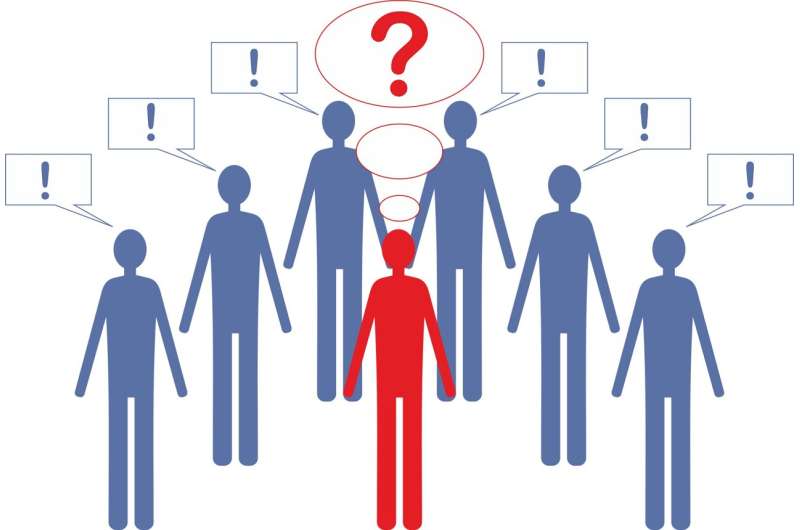This article has been reviewed according to Science X's editorial process and policies. Editors have highlighted the following attributes while ensuring the content's credibility:
fact-checked
trusted source
proofread
Is it possible to predict when prejudice will occur?

What if it were possible to use a scientific model to predict hate crimes, protests, or conflict? Researchers at McGill University and University of Toronto have begun the groundwork to develop a formal predictive model of prejudice, similar to meteorological weather predictions.
The model can be explained by the equation: Prejudice = Threat—Contact + Identification, "with some numbers involved," says lead author Eric Hehman, Associate Professor in the Department of Psychology and lead author of a new study published in Psychological Review. The model is currently about 50% to 60% accurate.
"Now that this initial model exists, it can be improved upon by the field over time, until people's prejudices can be predicted with high accuracy," said Hehman.
Eventually, he says, accurate models to predict the likelihood of mass human behaviors and conflict could be important to policymakers.
More information: Eric Hehman et al, Prejudice model 1.0: A predictive model of prejudice, Psychological Review (2024). DOI: 10.1037/rev0000470



















